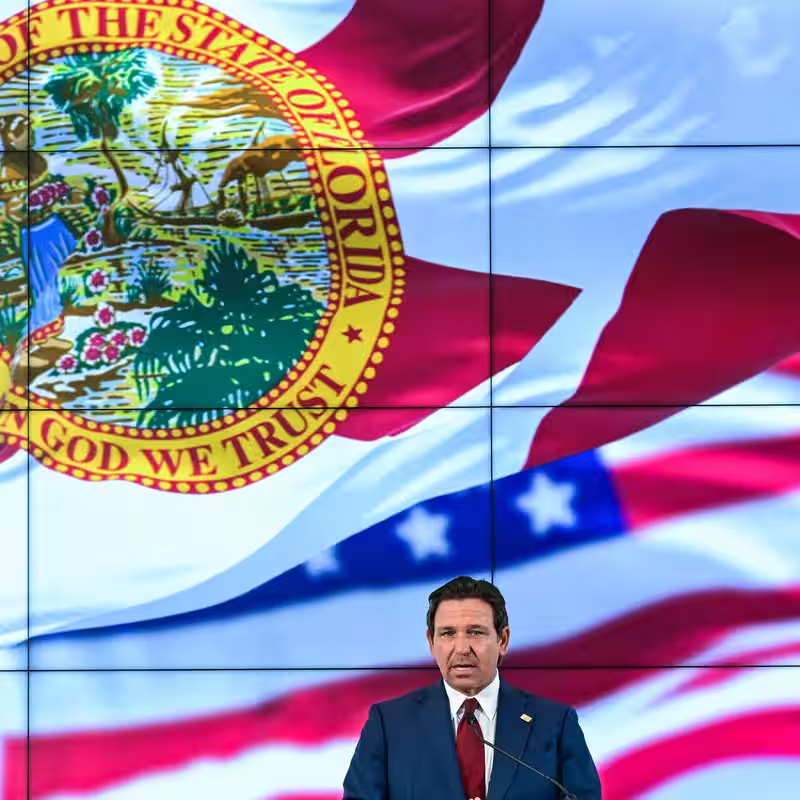In a sweeping move that has sent shockwaves through Florida’s higher education system, Governor Ron DeSantis announced on Wednesday that all public universities in the state will halt the hiring of foreign workers on H-1B visas. The directive, delivered during a press conference at the University of South Florida in Tampa, aligns with a broader national shift under the Trump administration, which recently imposed a staggering $100,000 fee on new H-1B visa applications .
What Is the H-1B Visa?
The H-1B visa is a non-immigrant visa that allows U.S. employers to temporarily employ foreign workers in specialty occupations—typically roles that require theoretical or technical expertise in fields like science, engineering, IT, and academia. Universities have long relied on these visas to fill critical positions, from researchers to professors and even administrative staff.
DeSantis’s Rationale: “Americans First”
Standing in front of a backdrop of American and Florida flags, Governor DeSantis questioned the necessity of importing foreign talent for roles he believes Americans can easily fill. He cited specific examples: a public policy professor from China, a graphic designer from Canada, and an assistant swim coach from Spain.
“Are you kidding me?” DeSantis exclaimed. “We can’t produce an assistant swim coach in this country?”
The governor’s message was clear: prioritize American workers, even in academic settings. His order instructs the Florida Board of Governors—which oversees the state’s 12 public universities—to “pull the plug” on all new H-1B hires.
Scope and Uncertainty
While the announcement was definitive in tone, key details remain murky. It’s unclear whether the ban applies only to new H-1B applications or if it will affect current visa holders whose contracts are up for renewal. The governor’s office and the Board of Governors did not respond to requests for clarification as of Wednesday evening .
By the Numbers: H-1B Use in Florida’s Universities
According to U.S. Department of Homeland Security data, Florida’s public university system received approval for approximately 400 H-1B visa petitions through June 2025. The University of Florida alone accounted for 156 of those approvals—the highest in the state—followed by institutions like Florida International University and the University of South Florida .
| University | H-1B Approvals (Jan–Jun 2025) |
|---|---|
| University of Florida | 156 |
| Florida International University | 68 |
| University of South Florida | 52 |
| Others (combined) | 124 |
National Context: The $100,000 H-1B Fee
DeSantis’s decision comes on the heels of a controversial Trump administration policy that imposes a $100,000 fee on institutions seeking to sponsor new H-1B workers. The policy, framed as a deterrent to “replace American talent,” has been widely criticized by universities, tech firms, and immigration advocates as economically punitive and logistically unworkable .
Florida’s move may signal a domino effect, with other Republican-led states potentially following suit. However, critics warn that cutting off access to global talent could undermine research competitiveness, delay critical projects, and harm Florida’s reputation as a hub for innovation.
What This Means for Florida’s Campuses
Faculty and administrators are bracing for impact. Departments that rely on international scholars—especially in STEM fields—may face staffing shortages. Graduate students who work under H-1B-sponsored professors could see disruptions in mentorship and funding. Meanwhile, international applicants may now look to states with more welcoming policies, shifting the academic landscape nationwide.




